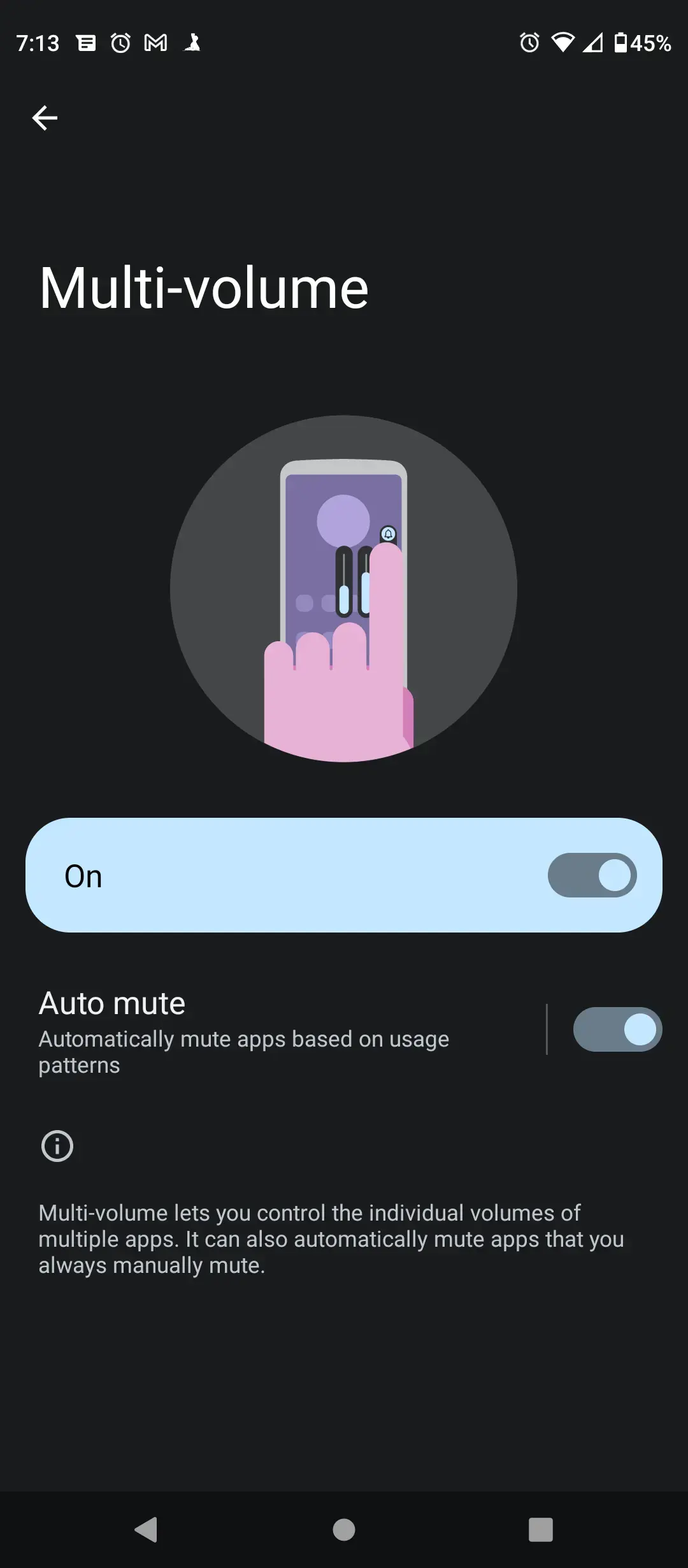Basically, what the title says. Do you use any app, that is proprietary, but either has no OSS alternatives or they’re all not good enough? If there is an alternative, what keeps you from switching?
Ticktock
Symfonium. There are plenty of music apps, and I’ve used a lot of them, but none combine the UX and functionality that Symfonium offers to anywhere near the same quality :/
You know? Doesn’t look like it’s quite there, but it’s the closest I’ve seen by far, I’ll have a good look I think! Thanks for that!
Edit: Tempo has Podcasts, Symfonium does not. Time will tell, but that may be the feature that pushes me over the edge.
yea considering its FOSS it was good enough compared to a lot of the other clients for me to move away from Symfonium
Synfonium is the only thing that I could get to work with my selfs hosted jellyfin server and with downloading of music. I haven’t had any problems with it though.
I was so pissed the other day while pulling out of the driveway that my paid copy of Symfonium wouldn’t work at all. It needed permission from daddy google to start but didn’t have an internet connection at the moment. Fuck that shit I gave you my money!
Google Play Services
MicroG works really well
A free-as-in-freedom re-implementation of Google’s proprietary Android user space apps and libraries.
MicroG works well if you let it leak some data to Google.
I would like a free-as-in-free-from-Google Google Play Services reimplementation that lets me use any app that depends on it without hitting any Google server.
OP asked about Open Source not about privacy.
MicroG minimises connections to google servers, here you can read what addresses it still connects to and why: https://github.com/microg/GmsCore/wiki/Google-Network-Connections
Free software (not open-source, it’s really free software that’s important) that depends on a single for-profit vendor is not free.
MicroG is open-source but it’s not free. It fails to address two problems:
- What do I care looking at the source code of a Google Play Services replacement when Google still holds my cellphone by the balls for certain critical functions?
- Why do I need permission from Google for apps to function properly on my cellphone?
I don’t think OP cares about getting the source of the apps they run so much as the apps being free-as-in-libre in his original question. Many people mistake open-source for free software and MicroG is not truly free.
(I reread ops question and I can only see the term open source 2 times, but whatever, I understand what you say, and I don’t want to debate about semantics.)
The point with microG is it’s still the best way if you want to use android. The other options are:
- Play services (GMS), or Huawei has some similar solution because of US trade embragoes.
- You can use android without play services but notifications won’t work for most apps, even if you can open them. (UnifiedPush tries to solve notification part) Wifi and cell based location won’t work
- I see microG as an acceptable middle ground. I still have to give up something to goog, but it’s not much compared to GMS, and I can use all available apps
The point with microG is it’s still the best way if you want to use android.
btw I’m perfectly fine without even MicroG. When I was installing my phone it asked whether I want that too, said no, and didn’t fell the need to then it on yet
Huh? Which rom asks this? Usually you have to go through hoops to get microg, and only a handful of roms have it builtin. It can only ask if you want to enable microg not installing it or not, microg to correctly work it should be installed in
/system/priv-app, to do that after boot on device, you have to be root.Do you use any app from aurora or outside fdroid? If your answer is no, than you can use android without a GMS package.
Also as I wrote, location won’t work for you underground or inside concrete buildings. If you are fine with these kind of limitations than you can obviously.
Marwin (the main developer of microg) said in some interview that he doesn’t want microg to exist, and in a perfect world we shouldn’t need such workaround. I would be also happy if android wouldn’t depend this muhc on google
Poweramp
There’s nothing else out there that’s really an equal, foss or not. The closest it gets is neutron, and that’s a hot mess of an app.
It’s the sound quality that’s standout. It doesn’t hurt that it’s a decent player in every other way too, but even apps built for audiophiles don’t match it in real use, in every situation.
None of the foss players are worth a damn sound wise; might as well use whatever comes with the device on that factor alone.
I agree.
I try to use as much FOSS as I can, but nothing even comes close to Poweramp.
I can’t say I’ve ever noticed any significant audio quality difference between this and something like Vinyl even on very good headphones.
But I would say that I’ve been trying to find equivalent equilizer functions that this app has on desktop. The bass boost function is the best one I’ve ever used. It even turned my very neutral etymotics er3se into solid thumpers.
But I would say that I’ve been trying to find equivalent equilizer functions that this app has on desktop.
Have you tried RootlessJamesDSP?
The headphones, and any other gear, probably make some difference; I’m balling on a budget, with some tin t2s for iem, and beyer 770s (80 ohm) for cans, through a fiio DAC for the cheaper devices (but my main player is an old lg g7). Now and then I’ll break out the portapros, and it’s more prevalent since they tend to be a little muffled in the mids and highs no matter what they’re plugged into.
But just the difference between something like gmmp, phonograph, musicolet, vanilla, etc, it can be a huge difference for me. Gmmp is decent, but there’s static where there shouldn’t be, and using the eq tends to distort on the low end even at low amounts of boost.
Can’t recall if vinyl stood out from the rest of the pack or not, since it’s been a couple of years since I did an extended comparison. All of the ones using the standard android audio processing were prone to some degree or another of mudiness to my ears. Some would get distorted playing through anything other than headphones, particularly with hip-hop and house tracks. That was with multiple aux cables, Bluetooth, and on multiple devices.
But, yeah, I would love it if max ported his eq app to other platforms.
Pedantic, but Google Messages’ RCS. And it’s all Google’s fault because they are holding the API hostage, probably because they want to create familiarity with the app so that people don’t switch once they finally open up.
I’m glad Google is exposing how crappy RCS is.
It’s been fifteen years, and all they have is a “protocol” that’s still completely dependant on a phone number.
What good is that? Why would I want that?
There are numerous systems that don’t rely on a phone number, e.g. XMPP did everything RCS is trying to do, in 2010.
RCS is not another chat app.
It’s the NEW SMS. That is why it is so important, and that is why it works ONLY IF YOU HAVE A PHONE. Because that’s literally the point.
Having your mom, grandpa, and everyone automatically use encrypted, modern comnunication just because they have a phone is extremely important.
Realise that in places where SMS has been historically free, SMS is the standard.
XMPP, Matrix or whatever will obviously still have its place for more “incognito” conversations. But having a phone number should also give you access to a better alternative than SMS.
as I understand a phone number “gives you access to” RCS as much as it does to Signal. at that point it’s just about what was pre-installed
Not pedantic at all. Google lied about RCS being an open standard.
The pedantic point would be saying that RCS, the protocol, is technically open, but the specific implementation that Google is pushing and being adopted is proprietary 🤓
So yeah. Totally fair point and fuck Google for their RCS bait-and-switch.
Not just that, but they are actively hostile and hypocritical about it. Every 1-3 months they prevent RCS from working on rooted phones or phones running alternate ROMs. The fact that they spent so much time complaining that Apple wouldn’t comply with the “open” standard while limiting users’ options on their own platform is very frustrating.
For anyone wondering:
RCS
Rich Communication Services. It is a protocol designed to enhance traditional SMS. RCS allows users to send messages that can include high-resolution images, videos, audio messages, and group chats, as well as features like read receipts, typing indicators, and location sharing.
There are so many. By usage however:
Smart Audiobook Player: None of the apps I tried had all the features in one, like reading my complex audiobooks folder structure and auto grouping the books based on that. Timer to pause audiobook that is automatically reset by moving the phone.
Maps: No foss solutions work better where I live than GMaps
YTMusic: So this is a tough one to beat because of the nature of the platform itself.
Notes: I am looking for a P2P syncable note app that can also have a web interface or atleast a Linux version of the App. Allows drawing your notes on an android phone or tablet using stylus, and other usual features. Can also use cloud storage as a backup or sync source. I know this one is a really tall order.
There’s a lot of FOSS music apps that just use YTMusic, like ViMusic or the ones other people mentioned in their replies. For maps, I use Organic Maps, the only thing I feel like is missing from it is traffic jams but I think you can see why that would be hard to add. It does have features that Google Maps doesn’t have tho.
OSMAnd works really well. For YTMusic, you can instead pick LibreTube and use it in music player mode.
OSMand is amazing for the most part but trying to locate a business is next to impossible. Then if you do, the store hours are either not there or incorrect. I’m trying real hard to make it my primary map app but too often I find myself having to open google maps in the end.
Edit: They also combined Caravan POI’s with Tourist destinations, which really really fucked things up for people wanting to just see those and not thousands of other locations they want nothing to do with. Why are churches also mixed in there too? Makes no damn sense.
@Sir_Kevin Have you ever corrected the incorrect store hours?
Not while driving a 30 foot RV in the middle of the night, no.
@Sir_Kevin missing the point on purpose?
Yes you’re missing the point. If I’m on the freeway in the middle of the night and take an exit to some town I’ve never been to only to find out the location is closed the app has failed. I needed accurate information in that moment. Not years later when the community gets around to correcting the hours. I absolutely need to be able to depend on the data the app is presenting. If I can’t I’m not going on a crusade to fix all the errors, I’m using a different app.
@Sir_Kevin I never said “Have you ever corrected the store hours while driving off a highway in another city” - obviously that would be a stupid question, don’t assume I’m stupid. I asked if you ever came back home, rested in front of Netflix and opened the app to update the store hours that you noticed during the day - because that’s the only way they will be updated, and if you aren’t doing it, then somebody will have to do it for you, so you owe them.
They also combined Caravan POI’s with Tourist destinations, which really really fucked things up for people wanting to just see those and not thousands of other locations they want nothing to do with. Why are churches also mixed in there too? Makes no damn sense.
You can edit those out, though I agree them being there by default is fucking stupid, full stop
Yeah, Osm is really good where I live, actually sometimes better/more up to date than Google Maps but finding businesses is more difficult.
I resolve this for my self by going to the website of the business, finding the address and putting it manually into Osm. Yes it’s more work but it works and is worth it for me.
If you live in an area that’s missing the data, it doesn’t matter how good the app is. I regularly upload in my area, but it will be years before it is reliable as a primary app. I usually search in Organic Maps first, then in Google Maps. OSM gets me where I need about 10-20% of the time at most. Google Maps is about 99%.
There are multiple front-ends for YT Music. Song Tube is good, Libre Tube is good, Inner Tune, Musify, Vibe You, etc. I haven’t used them all so I can’t testify to them, but it is a deep bench.
There are always people claiming Organic Maps or other OSM apps are perfect replacements for GMaps and I’m just curious what other tool these people were using for location based searches. Because it apparently wasn’t GMaps?
If you live in a big liberal city with a lot of tech people, then you probably have a really well organized team creating detailed maps. In that case, there’s no reason to think that Google is any better than osm. In a lot of cases it’s worse, especially for walking and cycling.
If you’re in a smaller, poorer city or a rural area, there’s a good chance that 80% or 90% of the addresses are just not there yet. Compare this random park in Berkeley, CA with labels for individual trees to this neighborhood in nearby Stockton, CA, which is assuredly more than 3-4 houses.
OSM usability really depends on where you live.
For ytmusic you can try innertune
I’ll mention organic maps and rimusic.
Two apps in particular: - Test me Anything* - I can’t wake up
*You could create your own types of test (because sorry, not sorry, Anki sucks): Typing Practice, Multiple Choice, True/False, Fill-in-the-Blank, Matching, Short Answer.
I think that app dead now, but I’m sure there are similar apps on the Play store.
I would like to find alternative to Garmin app. It is bad if you don’t want to use the cloud features, also you can’t plan routes without internet connection like wtf that’s the only reason I bought it for.
Have you tried Gadgetbridge?
It didn’t worked.
It didn’t work. (not being snarky, or a dick, honestly trying to help)
It hasn’t worked. It worked. It didn’t work.
For some reason getting tense correct on words like “work” is confusing for ESL. (or autoincorrect got you)
Sorry not native speaker, thanks for correction.
Thanks I give it a try, problem for me is that I need to plan route and then put it in cyclocomputer. I don’t need any other bs.
you can’t plan routes without internet
Oh fuck I hate that
My banking app ಠ_ಠ
I’m not sure if this fits but here is mine:
I want to get away from Samsung but the “Sound Assistant” app let’s me control the volume of every app, kind of like a mixer. Sometimes an app doesn’t have a mute option, I can set the volume of that app to 0 without effecting the volume of whatever music I’m listening to.
I also like to listen to my local police scanner and music at the same time. I can set the volume of the scanner app low enough to not really bother the music but loud enough that if something happens I can still hear it and pause the music.
I can’t believe Samsung and their app is the only way, but I haven’t found an alternative.

My Motorola has it built into the sound settings so you should be able to find other alternatives
Good to know, thank you for the heads up.
This is something I’ve taken for granted as per app volume control is integrated into the OS on Motorola phones and I’ve been using mid range Motorolas since the Moto G 4 in 2016 (they offer a reasonable price, reasonable performance, microSD card and headphone jack).
Then I was setting up a Samsung tablet last weekend and was horrified to see I had to use the Samsung store to download Sound Assistant for something I had just assumed was a standard OS feature for close to a decade.
I’m not super well versed in the world of app development, but I would assume due to the way apps are sandboxed, this isn’t something that could be done with a third party app.
system apps can do it. android has an API for audio mods that allows such things
Right, that’s what I meant when I said “third party app”. Samsung can write an app to do this, but your average app installed from the play store likely cannot.
I’m using audio changing Magisk mods on my phone, and recently stumbled upon an issue (already fixed by a setting) that made me realize that audio mods work on an app-by-app basis.
The reason I wanted to tell this is if you are fine with tweaking your phone a little, an audio mod could do what you need.
A quick search has shown me these:
Tasker: I haven’t used it, but I’ve seen useful automations over the years from people online and I would probably use a good FOSS alternative.
Bitwarden. Most people think that their application is open source, but more and more of their code has shifted from the GPL/AGPL licensed code to code in their SDK, which is under a proprietary license. This led to their new Android app being disqualified from being hosted in F-Droid repos.
Keyguard was supposed to be an open source Bitwarden client, but the dev chose to use a custom proprietary license, so that is source available as well.
Well fuck me.
They are remaking all apps as native apps so maybe this problem gets addressed too.
Their new, native android app is also using more and more of their proprietary SDK. It’s not something they’re trying to fix.
Makes me with Proton had their own password manager.
Oh!! I didn’t know that … :/
Vaultwarden ?
Edit: Nvm, that’s just the server part
That’s actually a good point too: Vaultwarden is fully open source. The official Bitwarden server also has proprietary components.
Yea but I didn’t realize the vaultwarden project didn’t also release client software.
I had looked into running my own vaultwarden, but without open source clients it’s maybe a bit moot. Although I guess the web interface can be considered a client, OS or browser integration is a convenient feature.
Just yesterday I deployed it locally, and was about to migrate from my keepasDX (+syncthing)…
Don’t get me wrong: BW is still a pretty good service, and the proprietary code is still readable by anyone, but the fact that they’re moving a bunch of their previously open source licensed code to something that’s source available is definitely unfortunate.
KeePass, on the other hand, has tons of actually open source clients, which definitely gives them an edge for people that don’t mind syncing their own DB.
thanks for getting the word out!
I’ve been a paying bitwarden customer for years but i through they were moving more towards free software and not away from it… Makes me consider quitting my subscription. Why do they do this?
Basically every app that is related to a proprietary service. Amazon, Battle.net and Steam authenticators, banking apps, Spotify, etc.
FYI, you can replace Steam Guard. There is a plugin for Keepass that can generate Steam OTP codes and it’s built in in KeepassXC (IIRC) and in KeepassDX on android.
for steam authenticator Aegis works too. For google’s and microsoft’s custom app too, and a bunch of others, even some non-standard ones
There already was a post like this this year but now my answer is “a standardized push notification system (most likely federated) that’s actually possible to be implemented in a user friendly way”. Google doesn’t want to encrypt theirs afaik and apparently some people are concerned about the traditional “every app is responsible for its own notifications” approach consuming much more battery, even though I didn’t notice it myself (I guess it’s possible if you have 50+ apps installed but it’s not something that should be a thing in the first place).
This ready exists. I forget what it’s called.
Unified Push?
I know about that but afaik almost nobody uses it. The only app I know that supports it is Mercurygram which is a Telegram client.
How does Element and Signal implement push notifications?
Idk about Element but Signal uses the Google’s insecure implementation if the device has gapps installed and it uses the traditional system which is not push if gapps are not installed.
Ah okay, thanks for the insight. I don’t have Gapps (MicroG or otherwise), so I do wonder how these services deliver their notifications.
If it’s not using GCM then it must be long polling, unless signal servers are set up to use a 3rd form of push (APNS for iOS, GCM for Android)
Molly (a hardened Signal mobile client fork) has a UnifiedPush version.
I was just thinking, how does one stop signal from sending the notifications to google, when moving to Molly with UP? is that automatic somehow?
People have hit on most of them here, but here is another big one:
Fitness apps. Mainly calorie tracking, workout tracking and heart rate tracking
Health app
Sleep as Android
(No, gadget bridge is not a replacement for 99% of cases and doesn’t even support the gold standard for heart rate tracking, polar H10)
For calorie tracking, the massive food databases required, barcode scanning, and crowd sourcing are generally not compatible with the open source community’s privacy ideals. OpenNutriTracker has promise though!
For workout tracking, none of them have any device support and most of them are dead and abandoned. Not to mention heart rate zones, stats and training trends, etc… FitoTrack and Opentracks are good starts though.
And then a google fit alternative. Something that can integrate sleeping, workouts, heart rates, sensors, etc… Data all in one aggregates place. It is a huge task and it makes sense that there is no open source alternative for it. Especially when the components aren’t individually there to aggregate.
I was looking for Sleep As Android too!! Separately to this I saw a comment on R a while ago asking for FOSS alternatives, and to say the dev’s response was out-of-touch would be an understatement. They just complained about not being able to make a living from a FOSS app…
Regarding Gadgetbridge though, those devs and contributors are running into more and more accessories using encrypted protocols which is a bit worrying. Right now I’ve settled on the BangleJS which has official support, just wish it had a more accurate heart rate sensor!
My dream FOSS health app would be some concoction of OpenScale and Gadgetbridge 😂
Sleep As Android is hands down the #1 app on my phone I cannot give up. It’s THE reason I could never switch to Apple. I’ve gone beyond basic use and now have it automating things based on sleep actions and I kind of love it.





















